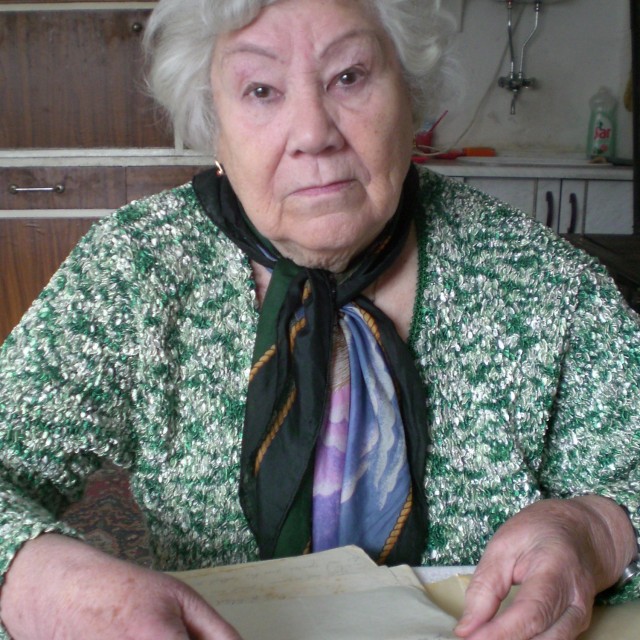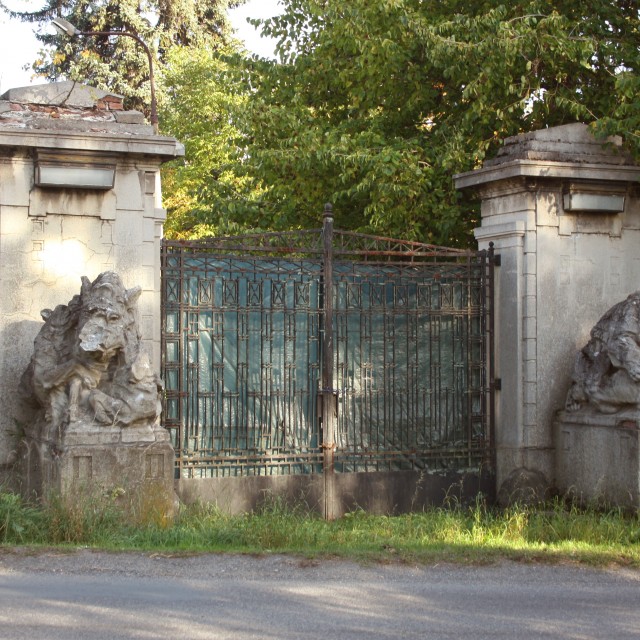She was helping the Jews under Heydrich’s nose
Helena Vovsová would secretly go to the stables, although it was strictly forbidden by “Heydriška,” (that is how the servants called Mrs Heydrich), with food and letters for Terezín prisoners who worked there in miserable conditions. “Once I was carrying a whole stick of salami, I wrapped it in an apron and carried it through the gate. But SS-man Hans had stopped me, he wanted to give me some clothes to be washed. We were walking through the allée leading to the chateau and on the way he told me: ‘Helena, you talking too much to Jews!' As we were tying bundles of clothes, Hans suddenly did a quick snatch and the salami fell out of the apron! Hans exclaimed: ‘Was ist das?!’ I quickly started to explain that the salami was mine and not for the prisoners,” Vovsová recalled.
Hodnocení
Abyste mohli hodnotit musíte se přihlásit!
Trasy
Příběh není součastí žádné trasy.
Komentáře

Helena Vovsová
Mrs. Helena Vovsová was born on February 12, 1926, in Prague. She lived with her family in Prague Karlín till she was four years old. Her mother was a housewife and her father was employed as a driver for Neumann and Co., a Jewish firm manufacturing shirts. He kept this job even after moving to Panenské Březany where little Helena started to go to school. Her life has been connected with this small town ever since. During the war, in 1941, she took up the position of a support worker in the gardens of Březany's Chateau. She also got to know the original Jewish owners. She entered the service of Konstantin von Neurath and remained even after his succession by Reinhard Heydrich. She experienced the assassination of Heydrich and the death of Heydrich's firstborn son Klaus who was run over by a truck. She witnessed Klaus' funeral in the Chateau park and experienced what life at the Chateau was like. During her service at the Chateau she used to help Jewish prisoners who worked there as well in various ways. Most notably Milan Platkovský, František Proper, (called Průša), Miki Bauer and Karel Schuck. After their departure to the Theresienstadt and Auschwitz concentration camps, she would also help incoming prisoners of Jehovah's faith who originated in Germany and the Netherlands. She also experienced the departure of Heydrich's family to the United States. After the war her father became a national custodian of the upper Chateau where K. H. Frank used to live during the war. The upper Chateau served as an internment camp for German women and the inmates of the camp were frequently visited by Soviet soldiers. The headquarters of the Soviet army were situated in the lower Chateau until the end of October 1945. In 1948, Mrs. Vovsová got employed in the Institute for Metal Research that was located in the lower Chateau after the departure of the Soviets. Mrs. Vovsová worked there until her retirement. She received post-war satisfaction. One of the Jewish prisoners who survived the concentration camps wrote a book about her help during wartime called To survive and live. She reunited with Milan Platkovský after the war and afterwards they corresponded. She met other prisoners and the representatives of Jehovah historians as well. Thanks to the former mayor of Letňany Mr. Dobrý and historian Čvančara, she also received public recognition. She still lives in Panenské Březany.



